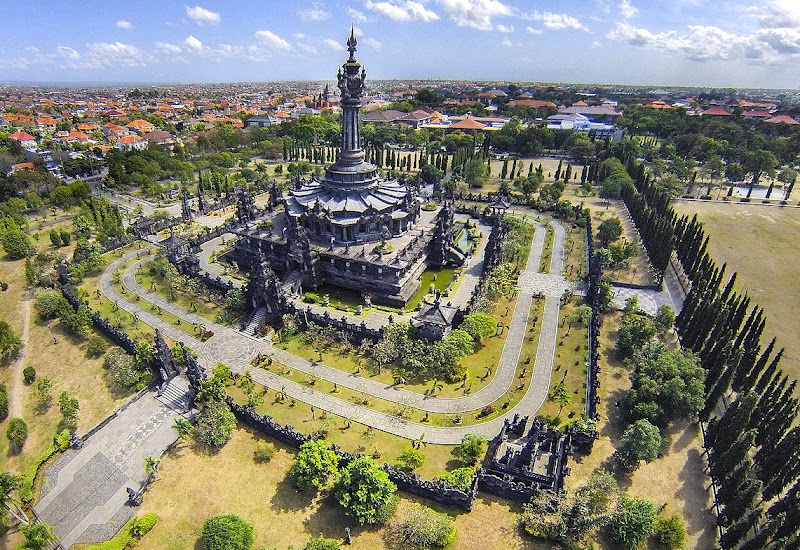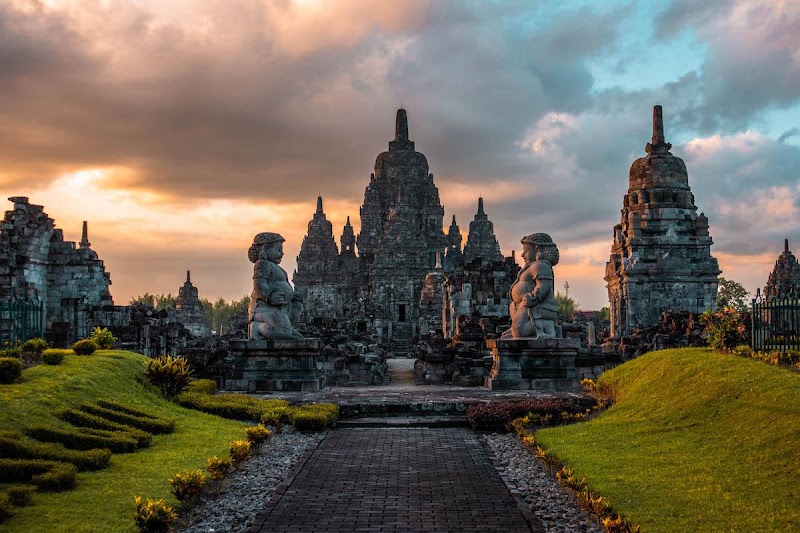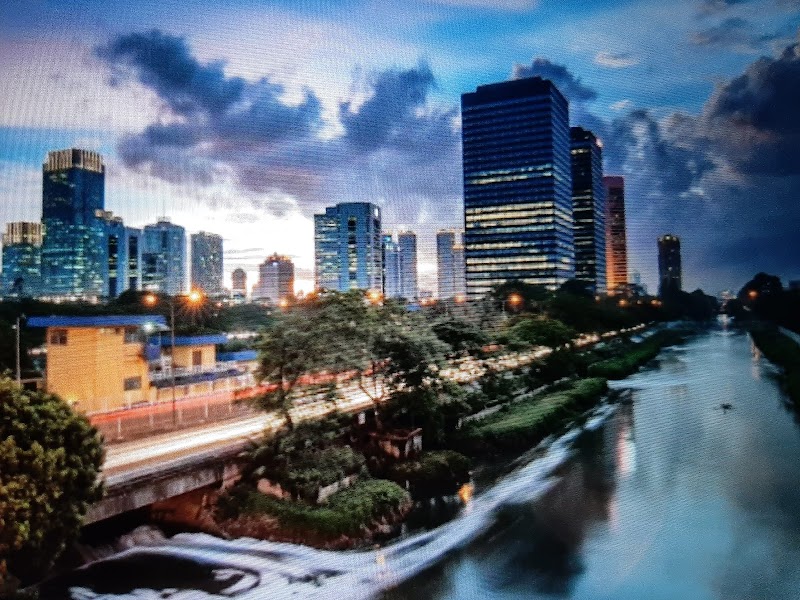Did you know that Indonesia, with its more than 17,000 islands, is the globe's most extensive archipelago? It's a destination that presents an extraordinarily diverse blend of cultural and natural attractions. From the mystic temples of Borobudur and Prambanan to the captivating beaches of Bali, and the arresting natural beauty of Komodo National Park, Indonesia captivates every traveler's heart.
Your Indonesian adventure wouldn't be complete without a tourist map. This indispensable companion is more than just a navigator. It's your key to unlocking the diverse experiences and hidden gems that make Indonesia such a fascinating country. Whether you're a history enthusiast, a nature aficionado, or a gastronome, this tourist map will guide you through the complex gamut of experiences that express the spirit of Indonesia.
What to see and do in Indonesia
Indonesia unfolds like a vivid tapestry of cultures, landscapes, and adventures, providing an array of unique and memorable experiences. From the heavenly beauty of Lake Toba to the intricate traditional Batik art, every element of this incredible country is designed to inspire and captivate. Let's delve into some of the lesser-known treasures and experiences that Indonesia has in store for you, from exploring Sumatra to Java's hidden gem, the Dieng Plateau.
Exploring Sumatra
Sumatra, a paradise of untouched wilderness and exotic wildlife, offers an immersive experience into Indonesia's verdant beauty. Venture into the Gunung Leuser National Park, a UNESCO World Heritage Site, where you can trek through the dense jungle and encounter Sumatra's most celebrated inhabitants - the Orangutans. Being in the heart of the jungle, hearing the symphony of chirping birds and rustling leaves, is an experience that redefines the essence of adventure.
Discover Lake Toba
As you continue your journey through Sumatra, Lake Toba, the largest volcanic lake in the world, beckons with its serene beauty. This enchanting lake is more than a sight to behold; it's a place steeped in history and legend. Discover the Batak culture, still preserved by the communities living around the lake, and immerse yourself in their music, dance, and traditional houses. This harmonious blend of nature and culture makes Lake Toba a unique experience that goes beyond conventional sightseeing.
Java's Hidden Gem: The Dieng Plateau
If you're looking for ancient temples and bustling cities, Java is the place to go. Hidden in its heart is a little-known wonder - the Dieng Plateau. At a height of 2,000 meters, this plateau offers a stunning panorama of terraced farms, ancient Hindu temples, and multicolored lakes. Wake up early to witness the golden sunrise over the mist-covered highlands, an experience that will etch itself in your memory forever. As you explore the plateau, don't miss the chance to visit the local tea plantations and savor the aroma of freshly brewed tea.
Immerse yourself in the Art of Batik
When in Indonesia, don't just see – do! And there's no better way to immerse yourself in the local culture than by learning the traditional art of Batik. This ancient technique of wax-resist dyeing has been passed down through generations in Indonesia. In cities like Yogyakarta and Solo, you can join a Batik workshop, learn this intricate art form, and even create your own masterpiece. It's not just about creating art, it's about experiencing a piece of Indonesia's soul.
Sulawesi's Cultural Tapestry
If you're seeking a cultural immersion, head to Sulawesi, an island that's a melting pot of cultures. From the unique Toraja culture with its iconic Tongkonan houses and elaborate funeral rites to the vibrant festivals of the Bugis and Makassar people, Sulawesi provides a cultural fiesta that's unlike any other. As you travel through the island, you'll not just see, but feel the rich cultural tapestry that makes Sulawesi, and indeed Indonesia, so unique.

Booking.com
Practical Information for your Indonesian Adventure
Transportation and Mobility
Indonesia's transportation network is extensive and diverse, offering various options to traverse the archipelago. From the bustling metropolises to the remote islands, getting around is relatively straightforward. The country has a comprehensive network of airports, with major hubs like Soekarno-Hatta International Airport in Jakarta and Ngurah Rai International Airport in Bali serving numerous international flights. Smaller airports cater to domestic flights, making air travel a popular method to cover long distances quickly.
For shorter distances, trains are an efficient and cost-effective option, particularly on the islands of Java and Sumatra. In cities, taxis, motorbike taxis known as "ojek", and app-based ride services like Grab and Gojek are commonly used. For exploring the islands at your own pace, you can rent a car or a motorbike, but remember to have your international driving permit.
Schedules and Prices
The operating hours for transportation services in Indonesia usually start early in the morning and run until late at night. Airports operate 24 hours, while train services typically run from 5 am to 9 pm. Taxi and ride-hailing services are also available round the clock. Make sure to check the latest schedules as they may vary, especially during public holidays and peak tourist season.
As for prices, domestic flights can range from $30 to $200, depending on the distance and the airline. Train fares vary widely too, from about $1 for a short journey in economy class to around $30 for a long-distance trip in executive class. Taxi fares start from approximately $0.70 per kilometer, while ride-hailing services may cost less, depending on the demand and time of day.
Safety Tips
While Indonesia is generally safe for travelers, it's essential to be aware of your surroundings and take standard precautions to ensure a safe and enjoyable journey. Be cautious of your belongings in crowded places and avoid isolated areas after dark. In urban areas, be aware of traffic rules and conditions, especially if you plan to drive or ride a motorbike.
Natural hazards like earthquakes, tsunamis, and volcanic eruptions can occur in Indonesia. Stay informed about the local situation and follow the advice of local authorities and your travel company. Ensure you have comprehensive travel insurance that covers all the activities you plan to do.
Practical Recommendations
The best time to visit Indonesia largely depends on the region you're planning to explore. The dry season, from May to September, is generally the best time to visit most parts of the country. However, some regions like Maluku and Papua are best visited during their dry season, which falls between October and April.
Indonesia's official language is Bahasa Indonesia, but English is widely spoken in tourist areas. Learning a few basic phrases in Bahasa can enrich your interactions with locals. The country's currency is the Indonesian Rupiah (IDR), and while credit cards are accepted in most places, it's always useful to carry some cash, especially in remote areas.

Frequently Asked Questions about Indonesia
We've covered a broad range of topics about Indonesia, but you might still have more specific questions about this fascinating destination. Here are answers to some additional common inquiries.
1. What unique shopping experiences can I find in Indonesia?
The Indonesian archipelago is a shopper's paradise filled with unique finds. In Jakarta, the capital, Pasar Baru is an old market where you can haggle for textiles, clothing, and shoes. Yogyakarta's Malioboro Street is famed for its batik and silversmith workshops. Meanwhile, Ubud Art Market in Bali offers a variety of handicrafts and art pieces. Don't forget to practice your haggling skills!
2. I'm a vegan. Will I find suitable food options in Indonesia?
Indonesia offers a variety of food options for vegans. Traditional dishes like Gado-Gado (vegetables with peanut sauce), Sayur Asem (tamarind soup), and Nasi Goreng (fried rice) can be made without animal products. It's also common to find tofu and tempeh, both soy-based proteins, in Indonesian cuisine. However, it's always a good idea to inform the restaurant staff about your dietary preferences.
3. How can I respectfully interact with local cultures in Indonesia?
Indonesia is a country teeming with diverse customs and traditions. It's crucial to respect local etiquette. Dress modestly, particularly when visiting religious sites. Always use your right hand for eating, giving, or receiving something. Refrain from touching someone's head as it's considered sacred. Learn a few phrases in Bahasa Indonesia, the local language, to show respect and forge connections with the locals.
4. What are some eco-friendly travel tips for Indonesia?
As a biodiverse archipelago, sustainable travel in Indonesia is crucial. Opt for eco-tours that support local communities and conservation efforts. Avoid single-use plastics; bring your own reusable water bottle and bags. Select accommodations that adhere to sustainable practices. When snorkeling or diving, do not touch the corals or marine life. Your responsible actions can help preserve Indonesia's natural beauty for future generations.
5. Can I use credit cards widely in Indonesia?
Credit cards are widely accepted in urban areas and tourist hotspots in Indonesia. However, when traveling to remote areas or small islands, it's advisable to carry enough Indonesian Rupiah, the local currency, as ATMs might be limited and credit cards may not be accepted. Always inform your bank about your travel plans to prevent transaction issues.
6. Does Indonesia have a good healthcare system for tourists?
Indonesia has a range of healthcare facilities, but the quality varies. Urban areas and tourist destinations like Bali and Jakarta have international-standard hospitals. However, in remote regions, healthcare facilities may be basic. It's advisable to have comprehensive travel insurance that covers medical evacuation. Also, bring any necessary medications with you, as they might not be easily available in Indonesia.

